Is Kombucha Really That Good for You? We Investigated

There are a lot of trendy beverages that have really made a big splash (pun intended?) in the wellness space during the past couple of years. While they're not exactly new inventions (some have actually been around for hundreds of years), they've definitely become more popular. There's celery juice, matcha, wellness shots, adaptogenic tonics, CBD and THC drinks, kombucha—just to name a few examples.
The last one, though, is probably the biggest standout in recent years. You can find kombucha not just at health food stores but also at your local chain grocery or convenience store. There are so many brands and offerings to choose from. And many people believe that the drink has digestive- and gut-health benefits that have an effect on the whole body.
But even though kombucha is pretty much everywhere, is it worth the hype? It has a lot of purported health benefits, but does the science stack up? Basically, is it really that good for you? We decided to ask the experts.
What is kombucha?

To start, it's important to know what the drink is really made out of. "Kombucha is a fermented beverage typically made from a combination of tea (usually green or black), sugar or some kind of sweetener (for example, honey or maple syrup), water, and active cultures," explains Tamar Samuels, MS, RDN, NBC-HWC, a registered dietitian, national board–certified health and wellness coach, and co-founder of Culina Health. The drink's origins are said to date as far back as 212 BC during the Chinese Tsin dynasty.
It's slightly fizzy and has a vinegar-like flavor, culinary and integrative dietitian Marisa Moore, MBA, RDN, LD, adds.
The Health Benefits of Kombucha
Kombucha has become a favorite wellness beverage because of its alleged health benefits. Many people swear by it for gut health and to ward off certain diseases and conditions. The thing is that, yes, the drink can be good for you, but more research needs to be done for conclusive scientific evidence. "Unfortunately, there isn't much scientific evidence on the health benefits of kombucha," Samuels says. "These studies are often difficult to fund, which contributes to the lack of research in certain medicinal foods like kombucha." Many of the studies have been conducted on animals, not humans, but there have been promising results from some of them. While not 100% confirmed, you might experience these benefits with consumption.
1. It Could Be Good for Your Gut

"Depending on the type of bacteria strain (and pasteurization), there's a chance that your kombucha contains probiotics," Moore says. "And those probiotics may confer some digestive-health benefits. Whether or not the good bacteria survives can depend, since most kombucha on the market is pasteurized."
Women's health dietitian and founder of Flourish Heights Valerie Agyeman, RD, adds that kombucha may help support gut health, which can have a beneficial impact on your overall well-being. "Probiotics work with your gut microbiota (the trillions of bacteria living in your intestine) to break down nondigestible components of your diet to produce beneficial substances that can be converted into energy, outcompete the 'bad' bacteria, and interact with the cells in your intestine," she says.
2. It Could Help You Manage Your Weight and Blood Sugar Levels

Vanessa Rissetto, MS, RD, a registered dietitian nutritionist and co-founder of Culina Health, says that kombucha made from green tea may offer many of the same health benefits as green tea itself, like weight loss and blood sugar control.
3. It Has Antioxidants

Agyeman adds that kombucha can contain polyphenols, which are also found in tea and act as antioxidants. If you're unclear as to what antioxidants do, they can fight free radicals, which can have a role in certain diseases like heart disease and cancer.
4. It Can Be Hydrating

Again, since kombucha is made from tea, you'll get some of the benefits associated with tea itself. "Tea is just as hydrating as water, and it contains flavonoids—the active compounds that may have a positive impact on health," Moore says.
5. It Can Help Your Liver

Samuels says that some of the studies conducted on rats have shown promising news, one benefit being that kombucha may reduce liver toxicity because of its antioxidant effects.
6. It Might Help With Type 2 Diabetes
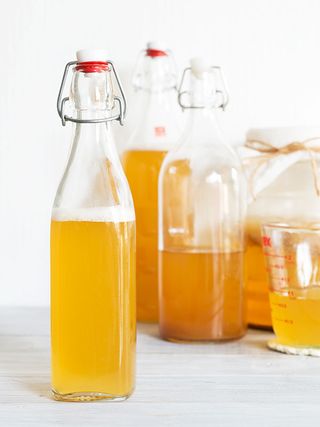
"Kombucha might help with managing type 2 diabetes," Rissetto says. "In several animal studies, it has improved several diabetes markers, including blood sugar levels."
What You Need to Know About Drinking Kombucha
If those benefits sound pretty good to you and you're thinking of grabbing a bottle or if you drink it on the regular, there are a couple of things you need to know. The experts shared some tips.
1. Look for Products With Less Sugar

"Some kombucha drinks are high in sugar, so it wouldn't be ideal if you had issues with your blood sugar," Rissetto says. "A lot of times, people assume because something is marked as healthy they can have as much of it as they want, and that just simply is not the case."
2. Food Safety Rules Apply

You'll want to purchase your kombucha from reputable places. "Make sure your kombucha has been brewed and handled safely," Moore says. "This is generally the case for those sold in stores. But home brewing can vary, so choose a reliable source."
3. Look for Probiotics

Don't just assume that every bottle of kombucha contains probiotics. "All kombuchas are fermented beverages, but not all fermented foods and drinks contain probiotics," Agyeman says. "If your goal is to find a product that contains probiotics, look for the specific strain of probiotic listed as part of the ingredient statement."
4. Store It Carefully

To prevent your kombucha from going bad, Samuels recommends keeping it out of direct sunlight, which will prevent overgrowth of harmful microbes.
5. Be Careful If You Have Digestive Problems

"Many people with GI conditions like IBS or small intestinal bacterial overgrowth (SIBO) are more sensitive to the probiotics in kombucha, and drinking too much of this product can actually make their symptoms worse," Samuels says. "Additionally, people who are immunocompromised (including elderly individuals) may be more sensitive to microbes found in kombucha."
And even if you don't have a GI condition, if you try to overdo it with the probiotics, it can cause discomfort, like gas and bloat. Samuels suggests starting with a quarter of a serving of kombucha a few days a week and then increasing slowly, as tolerated, to eight ounces daily. She also recommends adding more probiotic-rich foods like yogurt, kefir, sauerkraut, and kimchi to diversify probiotic strains.
6. Watch Out for Your Alcohol Tolerance

Kombucha has very low levels of alcohol, and some don't contain alcohol at all. (Double-check the seal on the bottle to be sure.) Samuels says some individuals who are sensitive to alcohol may not tolerate kombucha.
7. Be Careful If You're Pregnant

Moore adds that pregnant women should avoid raw (unpasteurized) kombucha. Unsure of the one you want to drink? Check with your doctor first.
So what's the verdict?
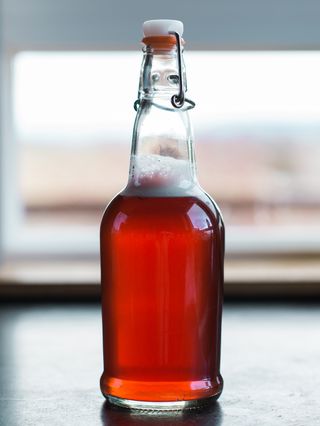
Because the benefits still need to be further researched, whether you consume kombucha depends on you and your personal dietary and health needs. For the most part, kombucha doesn't have too many bad side effects (as long as you keep in mind the tips above), so it wouldn't hurt to give it a try. Of course, if you have more questions about consumption, you should consult your doctor or a healthcare professional who might be able to give you more concrete advice based on your personal medical history.
Kombucha to Try
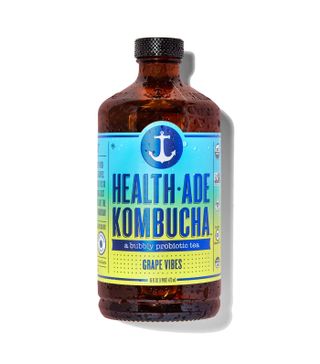
Health-Ade is brewed in small batches in Los Angeles and is one of our editor favorites. The products are certified USDA organic, are non-GMO verified, and are made with cold-pressed flavors from fresh ingredients. Plus, there are a ton of fun flavors, like Blood Orange-Carrot-Ginger and Pink Lady Apple (my personal favorite).
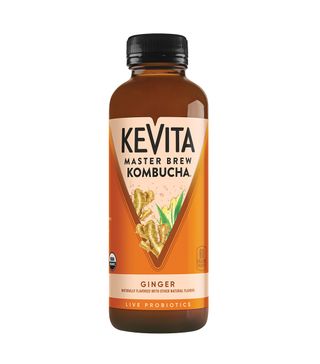
Agyeman, a partner of Kevita, recommends the brand's Master Brew Kombucha. She says she loves that all of its probiotic drinks are made with proprietary fermenting cultures, which are thoroughly researched to ensure they are high quality.
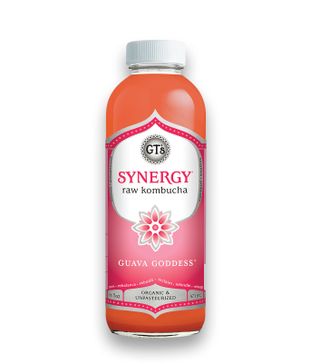
GT's is a popular brand that's been around for 20-plus years. The offerings are made of 100% certified raw and organic kombucha and juices and are free of artificial colors and flavors.
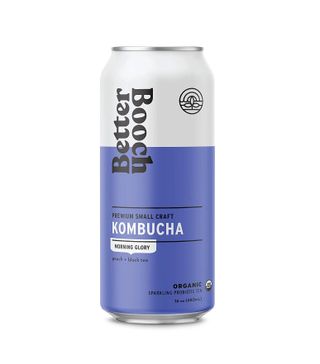
We like that Better Booch doesn't have added juices, syrups, or sweeteners and that it's made with premium loose-leaf tea, herbs, and botanicals. It's also got fun flavors like Golden Pear and Hola Horchata.
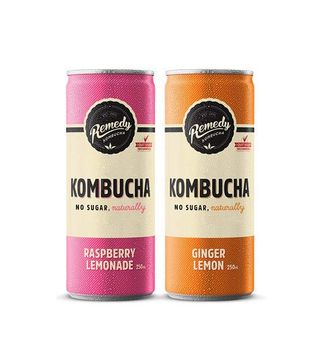
Remedy's kombucha is made in small batches and is brewed for 30 days. The drinks also contain zero sugar, so you don't have to worry about that.
Next up: 10 Kombucha Brands We Can't Stop Talking About
Disclaimer
This article is provided for informational purposes only and is not intended to be used in the place of advice of your physician or other medical professionals. You should always consult with your doctor or healthcare provider first with any health-related questions.
Sarah is lifestyle writer and editor with over 10 years of experience covering health and wellness, interior design, food, beauty, and tech. Born and raised in Los Angeles, she attended New York University and lived in New York for 12 years before returning to L.A. in 2019.
In addition to her work on THE/THIRTY and Who What Wear, she held editor roles at Apartment Therapy, Real Simple, House Beautiful, Elle Decor, and The Bump (sister site of The Knot).
She has a passion for health and wellness, but she especially loves writing about mental health. Her self-care routine consists of five things: a good workout, “me” time on the regular, an intriguing book/podcast/playlist to unwind after a long day, naps, and decorating her home.
-
 This Founder Shares Why We Should Start Celebrating Rest
This Founder Shares Why We Should Start Celebrating RestBurnout is nothing to be proud of.
By Kia Topps
-
 I Asked J.Lo's Trainer for His Very Best Fitness Tips
I Asked J.Lo's Trainer for His Very Best Fitness TipsGunnar Peterson has thoughts on how to get moving this season.
By Kia Topps
-
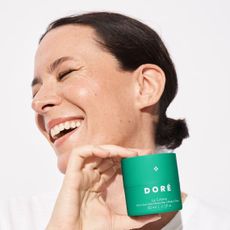 This Style Influencer Turned Founder Shares Her Favorite Ways to Start the Day
This Style Influencer Turned Founder Shares Her Favorite Ways to Start the DayA morning routine from London.
By Candice Aman
-
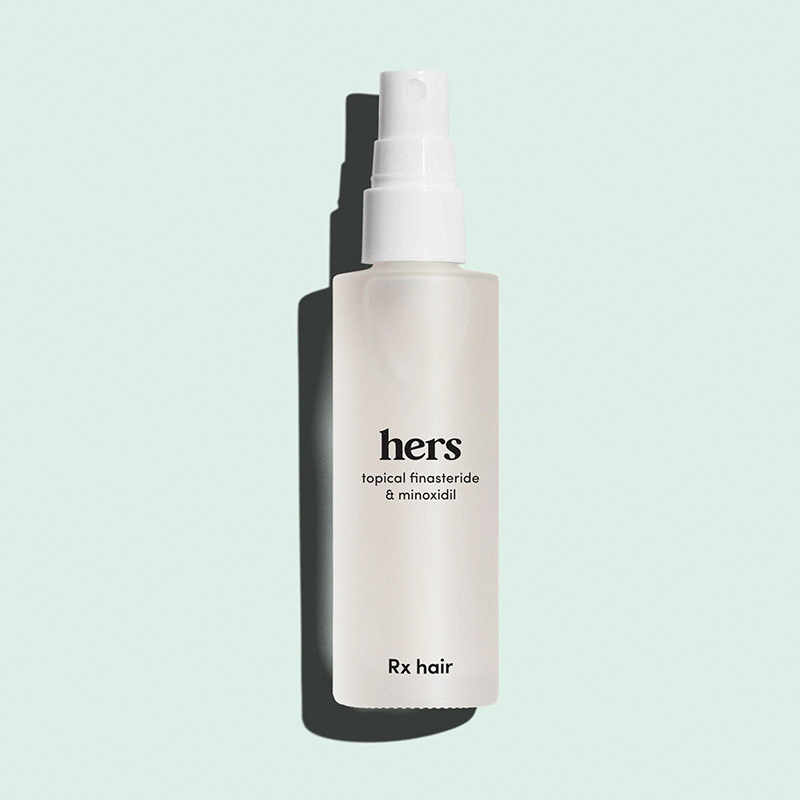 13 Products That Will Step Up Your Self-Care Game From Home
13 Products That Will Step Up Your Self-Care Game From HomeGet that glow from within.
By Natalie Gray Herder
-
 I Only Ate Sakara Life Meals for 30 Days—Here Are 7 Things That Happened
I Only Ate Sakara Life Meals for 30 Days—Here Are 7 Things That HappenedThe brand's 30-Day Fall Reset is finally here.
By Erin Jahns
-
 The 6 Warning Signs You're Not Getting Enough Protein
The 6 Warning Signs You're Not Getting Enough ProteinAnd what to eat to up your intake.
By Sarah Yang
-
 Everything This Professional Ballet Dancer Eats to Fuel Her For Performances
Everything This Professional Ballet Dancer Eats to Fuel Her For PerformancesHer grocery staples include high-quality French butter.
By Candice Aman
-
 These 8 Foods Are the Worst for Rosacea—Here's What to Eat Instead
These 8 Foods Are the Worst for Rosacea—Here's What to Eat InsteadControl those flare-ups.
By Sarah Yang

